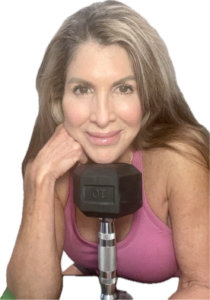When we think about getting older, most of us don’t picture limitations—we picture possibilities. Maybe you imagine hiking a trail you’ve always loved without needing to stop and catch your breath. Maybe you see yourself dancing at a family wedding, laughing and moving with ease. Or perhaps it’s something quieter, like being able to kneel down to garden, carry groceries without strain, or enjoy long days filled with the energy to actually do what you planned. Whatever your personal vision looks like, one thing holds true: it’s your health that will determine whether those moments feel joyful and accessible—or out of reach.
No matter what your vision looks like, it rests on one simple truth: Your body is the vessel that will carry you into those moments.
And how you care for that vessel today will shape the quality of your tomorrow.
It’s so easy to tell ourselves, “This won’t hurt,” or “I’ll get back on track next week.” It’s easy to take frequent “vacations” from healthy habits and hope the long-term impact will be small. But every choice we make—every skipped meal, every late night, every extra hour of sitting, every day we say “not today” to movement—adds up. Not necessarily in a dramatic way, but quietly, slowly, in the background.
And those small choices shape whether our last few decades feel vibrant and joyful…
or whether we’re “dying a little every day,” giving up mobility, strength, and energy that we could have protected.
The good news?
You have more control than you think.
And caring for your health doesn’t require extremes, punishment, or perfection. It requires daily actions—gentle, consistent, doable steps that honor the body you want to live in later.
Science shows that muscle health, in particular, plays a powerful role in healthy aging. When we challenge our muscles—even with low-impact sculpting or simple resistance work—the body responds beautifully. Stronger muscles support our joints, protect our bones, stabilize our balance, boost circulation, and help reduce the chronic inflammation that chips away at long-term wellness.
But this isn’t just about exercise. It’s about the foundational habits that create a body that will serve you in the decades ahead:
-
Daily movement—even 10–20 minutes adds up more than you realize.
-
Staying hydrated—fueling your cells, muscles, and brain.
-
Sleeping well—giving your body the time it needs to repair and reset.
-
Resistance and mobility work—preserving strength, balance, and ease.
-
Community—because support, connection, and accountability keep you going.
These choices are not small. They’re how you gift your future self the ability to live fully—not just survive.
Your health is worth the effort.
Your dreams are worth the consistency.
And you are worth caring for—today, tomorrow, and in every chapter still to come.
So let this be your gentle reminder—and your call to action:
Don’t wait. Start today. Choose the habits that will help you feel good, move freely, and live the life you imagine.
Your future self will thank you with every step, every adventure, every moment of joy you earned by saying, “My health matters.”
YOU got this.
Lisa









